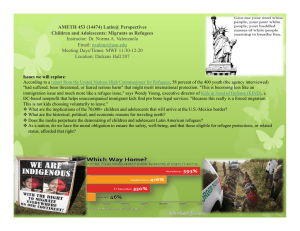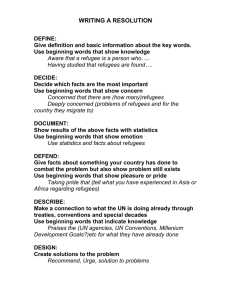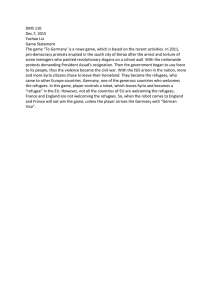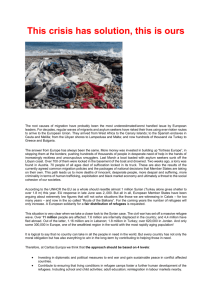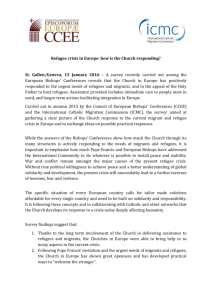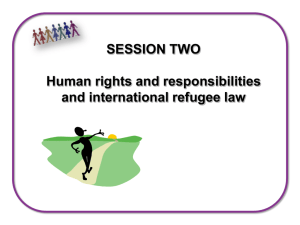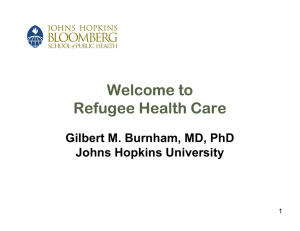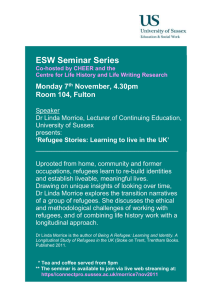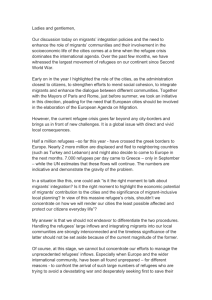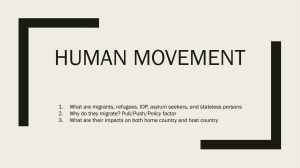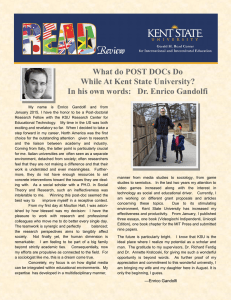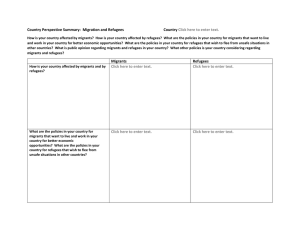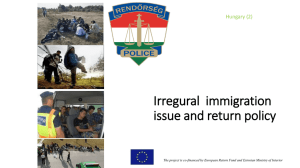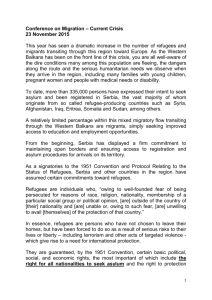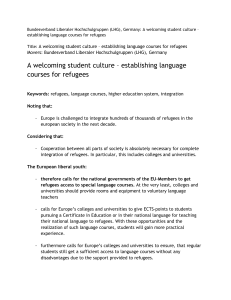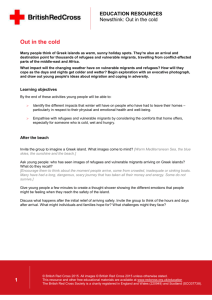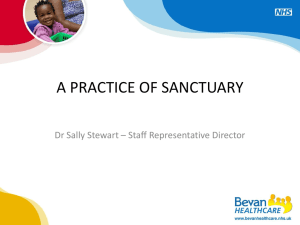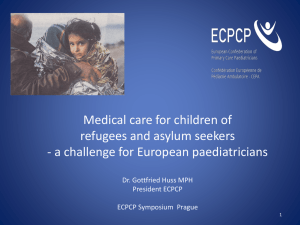English
advertisement
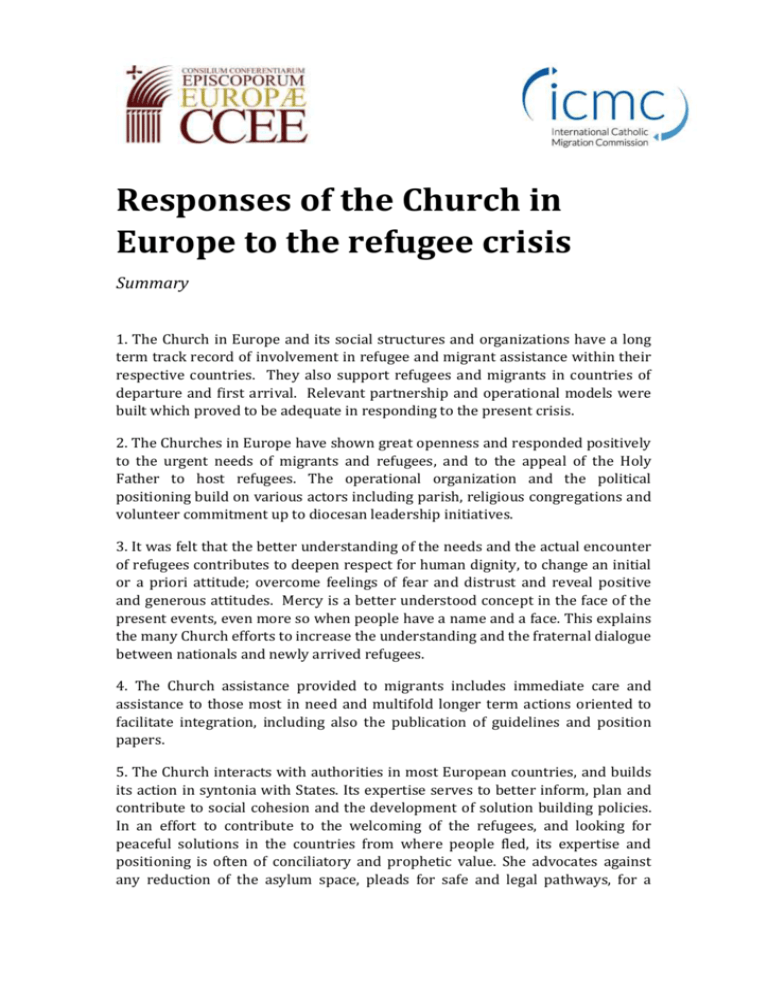
Responses of the Church in Europe to the refugee crisis Summary 1. The Church in Europe and its social structures and organizations have a long term track record of involvement in refugee and migrant assistance within their respective countries. They also support refugees and migrants in countries of departure and first arrival. Relevant partnership and operational models were built which proved to be adequate in responding to the present crisis. 2. The Churches in Europe have shown great openness and responded positively to the urgent needs of migrants and refugees, and to the appeal of the Holy Father to host refugees. The operational organization and the political positioning build on various actors including parish, religious congregations and volunteer commitment up to diocesan leadership initiatives. 3. It was felt that the better understanding of the needs and the actual encounter of refugees contributes to deepen respect for human dignity, to change an initial or a priori attitude; overcome feelings of fear and distrust and reveal positive and generous attitudes. Mercy is a better understood concept in the face of the present events, even more so when people have a name and a face. This explains the many Church efforts to increase the understanding and the fraternal dialogue between nationals and newly arrived refugees. 4. The Church assistance provided to migrants includes immediate care and assistance to those most in need and multifold longer term actions oriented to facilitate integration, including also the publication of guidelines and position papers. 5. The Church interacts with authorities in most European countries, and builds its action in syntonia with States. Its expertise serves to better inform, plan and contribute to social cohesion and the development of solution building policies. In an effort to contribute to the welcoming of the refugees, and looking for peaceful solutions in the countries from where people fled, its expertise and positioning is often of conciliatory and prophetic value. She advocates against any reduction of the asylum space, pleads for safe and legal pathways, for a quality welcome and for integration procedures including family reunification whereby full priority is given to the human person above his/her status. 6. In welcoming the refugee/migrant the Church constructively faces the complexity of situations but its efforts are burdened by the reducing means, the lack of solidarity between States; the inadequacy of some national strategies; the differences in status; growing xenophobic behavior combined with feelings of insecurity; logistic issues including delayed arrivals and the determination of the refugees/migrants to continue their road until the destination of their choice. 7. Contacts with the Church of origin and with the diaspora vary in the fields of interaction as well as in the purpose for such interaction. The presence of priests from countries of origin has proved to be very helpful in bridging the gaps and establishing the dialogue.

